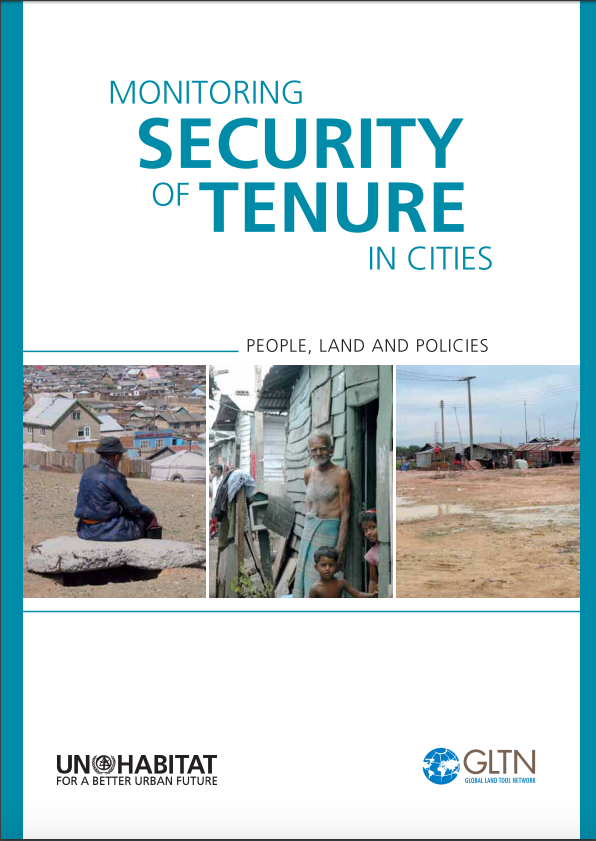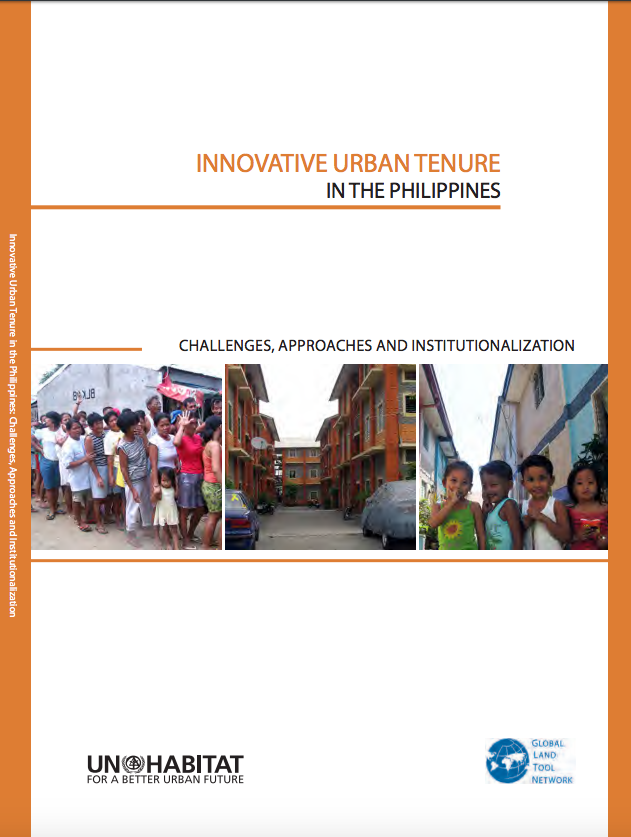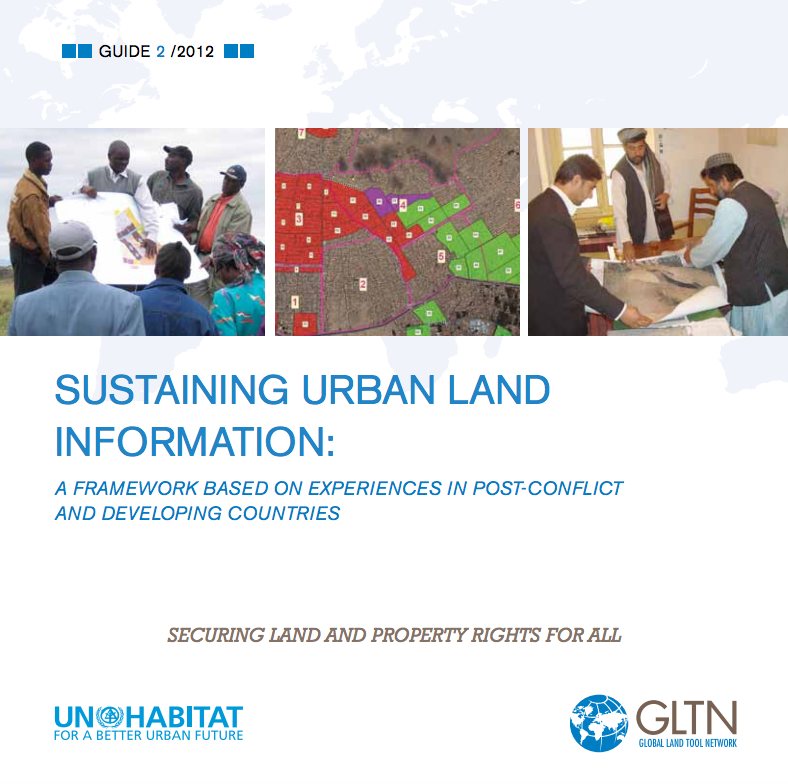Monitoring Security of Tenure in Cities: People,Land and Policies
This publication, Monitoring Security of Tenure in Cities: People, Land and Policies, presents an innovative method to ascertain the extent to which security of tenure can be measured at three main levels. Targeting cities in developing countries, the methodological framework presented in this publication is entrusted in the concept of continuum of land rights where tenure can be realised at various levels: individual, household, settlement or community, city and national levels. Various options to measure tenure security at each of these levels are presented.






